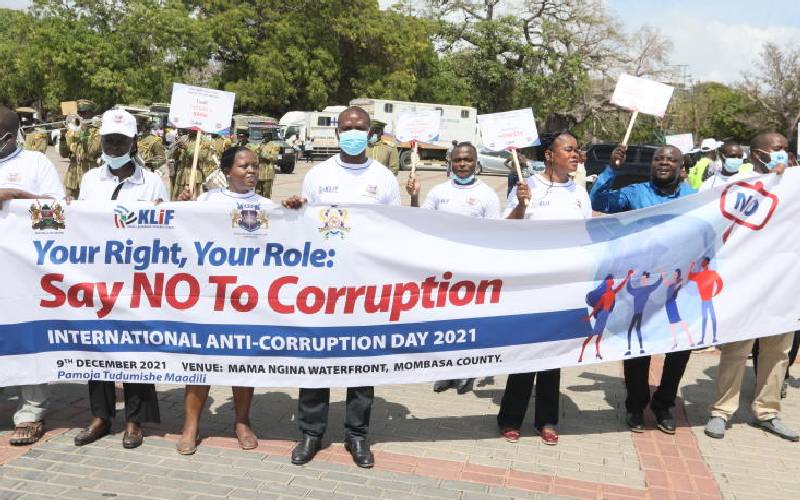×
The Standard e-Paper
Join Thousands Daily

Members of the public march in a peaceful procession at Mama Ngina Seafront in Mombasa to mark International anti-Corruption Day. [Omondi Onyango,Standard]
That most Kenyans, and particularly those who work for politicians, are hypocrites is never in doubt. They change positions on issues of national importance if they favour or are against the rhetoric of their favourite politicians.